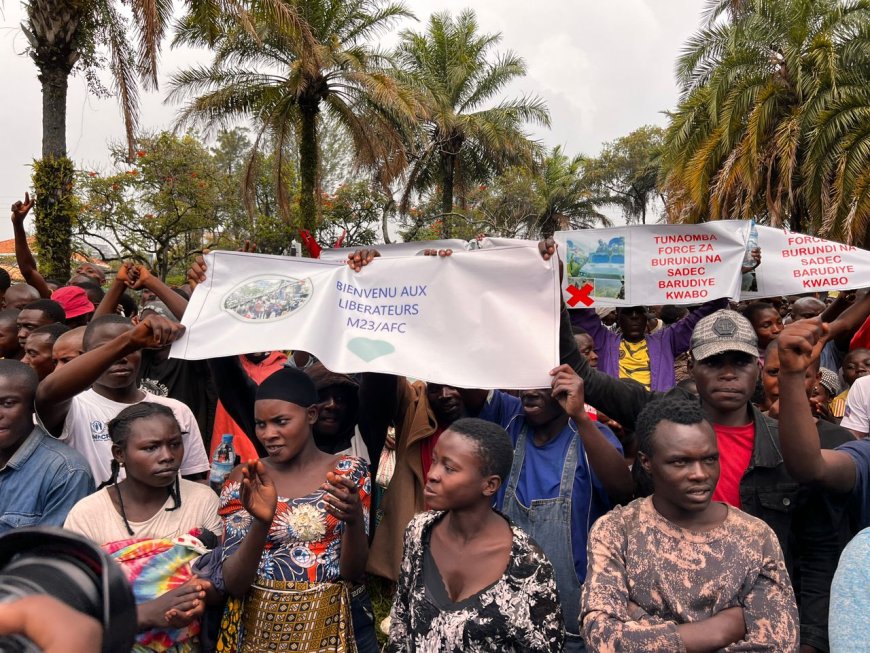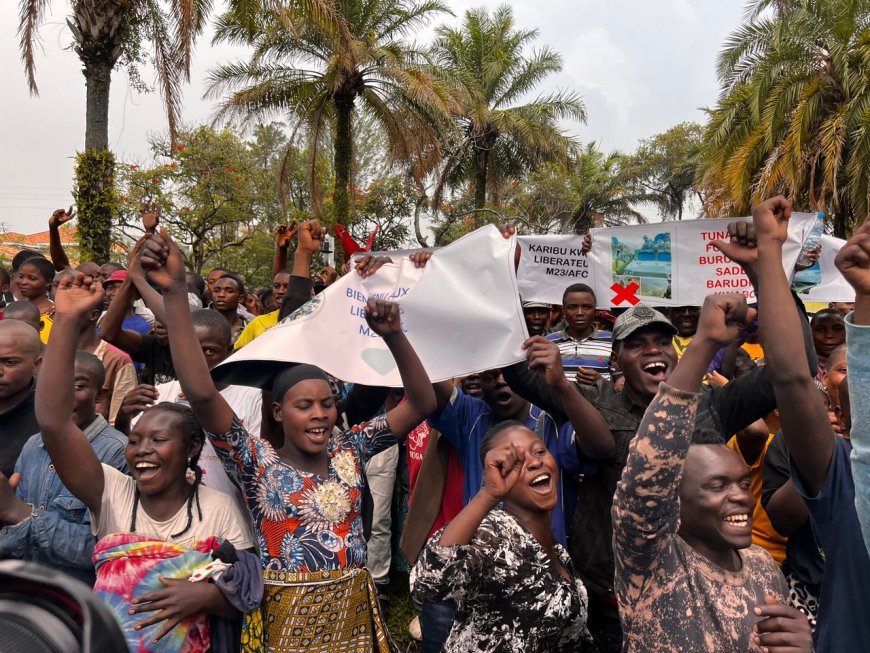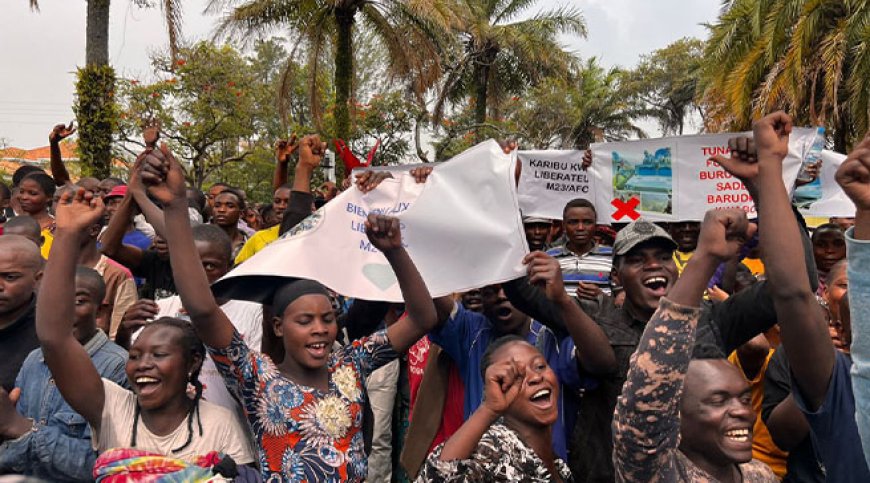Goma in Turmoil: Residents Demand Tshisekedi’s Resignation as M23 Rebels Take Control Amid Calls for Foreign Troops to Leave
Protests surge in Goma, DRC, as locals call for President Tshisekedi's resignation and the removal of foreign troops. The city is controlled by M23 rebels, intensifying the unrest and amplifying demands for change. Here are the latest updates on the situation in North Kivu.

Breaking news from the Democratic Republic of Congo: Goma is now the center of escalating unrest. Residents and civil society organizations are protesting, calling for President Félix Antoine Tshisekedi's resignation and immediately withdrawing foreign troops from the nation.
These demonstrations arise as the M23 rebel group maintains its hold on Goma, the capital of North Kivu Province, following intense clashes with Congolese government forces, known as the FARDC. The violence has also involved allied factions like the FDLR and Wazalendo, worsening the already precarious security landscape.

In a remarkable turn of events, some residents of Goma have openly embraced the M23, expressing their gratitude for what they view as their liberation from the Tshisekedi regime. Protesters held signs and banners thanking the M23 for freeing them from what they refer to as the "shackles of oppression." Numerous residents accuse the government of not just failing to protect them but also collaborating with groups such as the FDLR, a Rwandan Hutu rebel faction linked to the 1994 Rwandan genocide.
Civil society organizations in North Kivu have joined the protests, denouncing the Kinshasa regime and calling for President Tshisekedi's resignation. They contend that his governance has brought the country to the brink of collapse by partnering with foreign troops and armed groups that have not succeeded in providing security to the region. Protesters are also demanding the withdrawal of foreign forces, including troops from Burundi and the Southern African Development Community (SADC), whom they blame for worsening insecurity rather than resolving it.
In a remarkable turn of events, some residents of Goma have openly embraced the M23, expressing their gratitude for what they view as their liberation from the Tshisekedi regime. Protesters held signs and banners thanking the M23 for freeing them from what they refer to as the "shackles of oppression." Numerous residents accuse the government of not just failing to protect them but also collaborating with groups such as the FDLR, a Rwandan Hutu rebel faction linked to the 1994 Rwandan genocide.
In North Kivu, civil society organizations have joined the protests against the Kinshasa regime, urging President Tshisekedi to resign. They argue that his leadership has pushed the country towards collapse by collaborating with foreign troops and armed groups that have failed to ensure regional security. The protesters also seek the withdrawal of foreign forces, including those from Burundi and the Southern African Development Community (SADC), whom they believe have exacerbated insecurity instead of alleviating it.
In the meantime, the M23 has attempted to reassure the residents of Goma and other territories under its administration. Benjamin Mbonimpa, the Permanent Secretary of the AFC/M23 alliance, has encouraged individuals to return to their homes and resume their daily lives, assuring them of complete security. Additionally, the group has invited locals to partake in community clean-up initiatives, known as "Salongo," aiming to help restore normalcy in the city.
The atmosphere in Goma remains tense, as life gradually re-emerges on the streets with residents cautiously returning to their routines. Nonetheless, the wider consequences of this unrest are substantial. The protests and M23’s grip on Goma reveal deep-rooted frustrations with the central government and the persistent instability in eastern DRC, a region burdened by decades of conflict, ethnic strife, and competition for resources.

International observers are closely watching the situation, as worries mount about the likelihood of further violence and displacement. The United Nations and regional organizations could encounter mounting pressure to facilitate dialogue and tackle the underlying issues of the conflict.
Currently, the residents of Goma find themselves trapped in the midst of a complex and escalating crisis. Their calls for change and security reflect the larger challenges confronting the Democratic Republic of Congo as it seeks to establish a route toward peace and stability.
 Kinyarwanda
Kinyarwanda
 English
English










































































